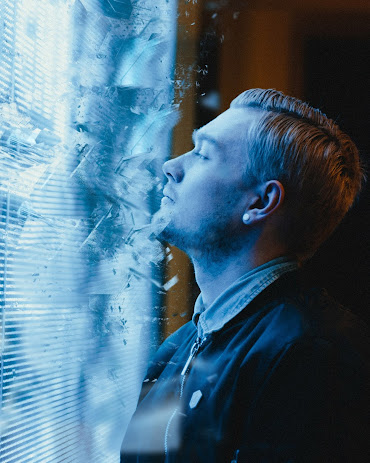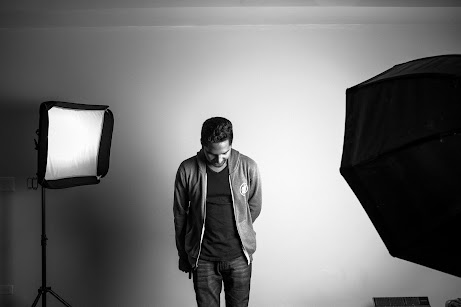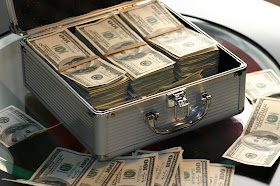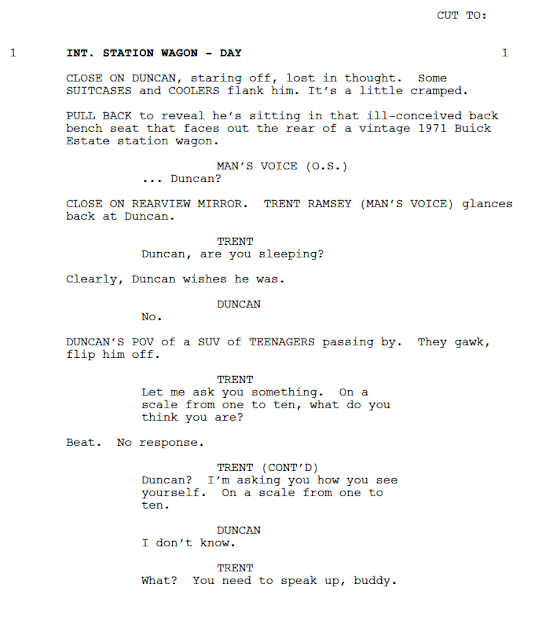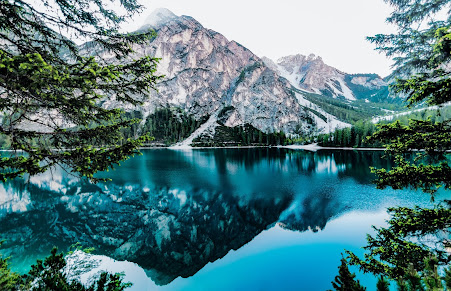ACTION (FILMS)
An action film is a genre in which the protagonist or protagonist participates in a variety of events, including violence, extended combat, physical victories, rescue and ventic instruments. Common action scenes in movies are common, but not limited to, explosions, car chases, fists and shootouts.
This major genre includes tremendous impact, continuous high energy, physical acrobatics and activities, extended chase scenes, races, rescue, war, martial arts, mountains and mountaineering, catastrophic disasters (floods, explosions, natural disasters). Fire, etc.), fights, escapes, non-stop motion, stunning rhythm and movement, and adventurous protagonists - all with action scenes in the main part of the film designed for pure audience escapism. Films
(See Lists of Adventure Film Zoner for examples of these action / adventure pictures. There are two types of films that come in a variety of forms or genre-hybrids: sci-fi or space, thriller, crime-drama, war, horror, western, etc. Often, action movies are at the box office. Were huge successes, but did not attract critics because of their two-faced heroes or villains.
Women in action-films usually play the role of hero or have romantic tastes, although modern action films have strong female characters to broaden the appeal of the population.
They are almost always the resource hero who fights against unbelievable inequality, deadly conditions or the evil villain, and / or various modes of transport (bus, auto, ship, train, plane, horse). To each other. , On foot, etc.), with intense physical force and violence (fist fights, gunplay) until victory or determination to the end. Action movies have traditionally targeted American audiences, in the American and global markets, between the ages of 13 and 30.
Types Of ACTION Genre (Films)
- Spy
- Races Against Time
- Disaster Film
- Martial Arts
- Superhero
- sci-fi
- Action (Horror)
- Action (Comedy)
- Adventure
- Fight
- Escape
- Battels
- Chases
- Rescue
ADVENTURE
 |
| Adventure |
What is the best definition of an adventure fiction genre? Adventure style includes books where the hero goes on an epic journey individually or geographically. Often the hero has a mission and encounters many obstacles in his path. A good example of this is the Lord of the Rings series. The adventure genre is often paired with the action genre, as most of them have action on long epic journeys. Adventure style can be combined with any other genre; It is as versatile as romance and drama, it can blend in and work with any other generation.
Courage, pris ambition, brave, courageous, angry, careless, foolish means risking oneself more than necessary in a good sense. Courage means willingness to accept risks, but clarity is not required. Courageous guiding organizations mean anxiety for dangerous tasks.
Adventure (pronounced ad-van-cher) originally originated from the Old French adventure word "destiny", "fate" or "event of chance". Today, we define adventure as an event in which a person participates as a result of a great or unexpected journey, experience or opportunity. These last details, the evolution of opportunity, are the highlight of the adventure; Stories usually have a role to bring into the adventure and opportunity usually plays a big role in the episodes of the story. In addition, stunts are usually dangerous situations, narrow escape, intelligence and skill, problems to be solved by foreign people and places and brave work.
Adventure stories include physical action and adventurous heroes protecting others from danger or impending doom. The fantasy adventure genre is fast paced and usually focuses on the protagonist in dangerous or dangerous situations. Adventure fiction overlaps other genres such as romance, detective thriller, military adventures and Western countries. Science fiction novels always have elements of adventure.
Types Of ADVENTURE Genre
- Exiting Stories
- New Experience
- Historical Epics
- Treasure Hunt
- Disaster Film
- Mysterious
COMEDY
 |
| Comedy |
Comedy is any activity intended to provoke laughter and entertainment, especially in theater, television, film, stand-up comedy or other entertainment media. It dates back to the time of the ancient Greeks, and derives from the literary definition of comedy, which refers to a medieval story or story with an entertaining character that conquers bad situations and creates a comic effect. The tone here is light and ironic and the story is always good.
In relation to the motion picture industry, the definition of comedy genre is film that features films or shows that make people laugh and give positive conclusions. Finally, comedy makes people laugh. What is it about comedy? Although humor is subjective, it takes a few things to make comedy a success.
When was the last time you had a great laughter? Maybe you are watching a movie or meeting up with friends. Either way, you are probably looking at comedy, which is a genre of literature from a literary perspective that adopts a comic or familiar style and depicts characters and situations of laughter.
The comedy genre (and its name) began in Athens, Greece in the 5th century BC. Tragically, its teardrop-jerking specimens originated from the comedy Athenian ceremony, dedicated to the Greek god of wine and revelation, Dionysus. This festive theme of the goddess gives comedy its name and some ridiculous features, as it is derived from the Greek word commos ('revelation' or 'mira-making').
The compositions of the famous Athenian comedian Aristophanes are some of the earliest examples of comic literature that still exists, and they play an amazing role in shaping some of the features of the moment. From the time of Shakespeare's comic plays, the literary form added many more subspecies to its entourage - from bureaucracy to satire to black and romantic comedy. Although there are some differences between these comic works, they share many of the characteristics that identify them as ‘comedy’. Let’s take a look at those features below.
Types Of COMEDY Genre
- Language
- Action
- Characters
- Relationships
- Tragicomedy
- Romantic Comedy
- Comedy Of Humors
- Physical Comedy
- Spoof
- Parody
CRIME
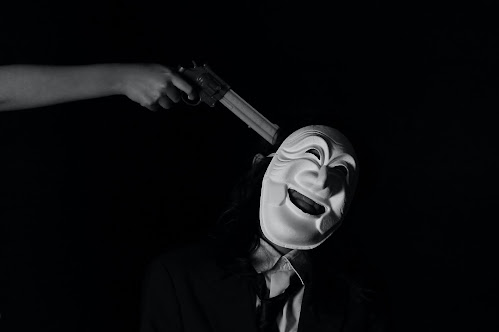 |
| Crime |
A very broad group of fictional images, which make crime the central theme of their plots. Fictional criminal act, however, is only the exit point in defining this group of images. For example, horror movies are full of criminal acts, but are rarely considered part of the crime film genre; Similarly, crime is central to the thriller genre. The uniqueness of the crime film lies in its predecessors; Truth Crime novels, Victorian serial fiction literature and detective stories by Edgar Allan Poe and Arthur Conan Doyle. Early crime films included biographies and Motosco's five-part series, A Career in Crime (US, 1900), in which a young man is convicted and sentenced to death with an electric chair. The Great Train Robbery (Edwin S. Porter, US, 1903), The Life of Charles Peace (William Hager, UK, 1905), and Salvinin Polatazat / The Bootleggers (Louis Spear and Tou Puro Finland, 1907) are all based on their actual plots. Plot-life crime. In France, the Fantamos serial (Louis Fuelde, 1913-14) featured the exploits of a terrible master criminal; Many adaptations of Conan Doyle's Sherlock Holmes stories have taken place in Europe and America. There were gangster movies (or the main cycle of Croke melodrama) in the mid-1910s and late 1920s to the late 1930s. The 1920s and 1930s were the golden age of detective fiction, with novels by Dashiel Hammet and Raymond Chandler in the US, and Agatha Christie's detective stories in Britain gaining commercial and critical acclaim, and the work of these authors regularly. Adapted to screenplays from the 1940s. The darker version of American crime film later attracted the label film Noir.
Crime movies are, in a broad sense, inspired by a cinematic genre and adapt to the crime fiction literary genre. Movies of this generation can usually identify various aspects of crime and its nature. Stylistically, this genre can overlap and blend with many other genres such as drama or gangster film, but it also includes comedy and is subdivided into several sub-genres such as mystery, suspense or noir.
Types Of CRIME Genre
- Criminals
- Bank Robbers
- Underworld
- Murder
- Gangster
- Detective
- Mysteries
- Kidnapping
- Crime War
- Prison
DRAMA
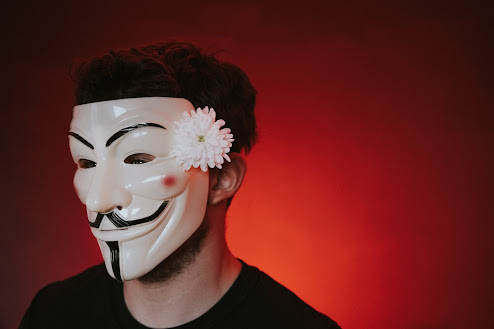 |
| Drama |
Drama film is a genre that relies on the emotional and relative development of real characters. While the drama film relies heavily on such developments, theatrical themes also play a large role in the storyline. Often, these dramatic themes are taken from deep, real-life issues. The aim of the play is to tell the honest story of human struggles, whether the protagonist or the protagonist is struggling from the outside or fighting within himself.
Drama film is a film that relies heavily on character development, dialogue and highly emotional themes. In a good drama film, the audience can feel that the other characters are feeling and recognizing each other.
This style is more useful by challenging ignorance from stereotypes or other simplistic simplifications, bringing it to a more personal and complex level. Also, such movies can also be therapeutic by showing how the characters catch up with their problems, challenges or issues and how well the audience recognizes the characters with their world.
This film style can be combined with action film, which relies on fast action and character development.
Dramatic images contain very large images. War films, courtroom drama, crime drama, historical drama and biographical films are all drama films, but due to the large number of drama films these films are subdivided. All film genres have dramatic elements such as comedy, action films and horror films, but the most commonly considered films focus primarily on the drama of the main issue.
Types Of DRAMA Genre
- Dramedy
- Historical
- Melodrama
- Biography
- Tragedy
- Politics
- Romantic
EPICS
Epic film is a style that takes historical events and people and describes them extensively. Historical accuracy is not the main focus in the epic, the great storytelling. The drama of an epic film is often pronounced with an extensive musical score, luxurious costumes and high production values.
"Music," "Comedy," "War Film" and "Western" "Epic" is a term used by Hollywood and its promoters, critics and academic writers to identify a particular type of film. . It was first used extensively in the 1910s and 1920s: a review of Ben-Hur's (1925) variation on the term "re-interpreting the word epic during paintings" (6 January 1926: 38). It was prevalent in the 1950s and 1960s, when all sorts of myths were built to counter the decline in the presence of cinema. In a word, "epic" is associated with all kinds of historical images, especially those dealing with national or global imports or level events. As a genre it contains a lot of war films and films set in the past as well as Western countries. But because of its connection with ancient scientific literature, it is associated with images set in biblical times or in the ancient world. However, the term "epic" has also been used to identify and market all types of images - from expensive methods, high production prices and special methods of distribution and presentation, to simple structures and rival forms. Separate themselves. Contemporary entertainment. So epics have at least two elements, two of which have different characteristics: those associated with historical, biblical and ancient-world images and large-scale, high-priced exhibitions.
Types Of EPICS Genre
- Historical Drama
- Historical Fantasy
- Fiction
- Other Planet
- Special Character
HORROR
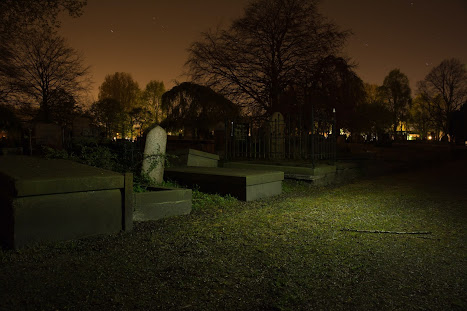 |
| Horror |
Before the early cameras were made people were telling horror stories.
Which was the first horror film? As far as we know, the first horror film was produced by the French filmmaker Georges Meliz and was named Le Manorre du Dieble (AKA The Devil's Castle / The Haunted Castle). It was built in 1896 and is only two minutes long.
The thing that strikes me is that even then we have some special crops. The picture shows a flying star, a medieval castle, a vase, a monster and skeletons, ghosts and witches. There is also a cross to destroy evil.
These types of movies and TV shows were initially inspired by the literature of authors such as Edgar Allan Poe, Bram Stoker and Mary Shelley.
Horror has been a film genre for over a century.
Horror movies often reflect where we are as a society and are a good way to learn progress and social consciousness.
Horror is the genre of film and television that evokes feelings of fear, panic, disgust and terror in the audience. The primary goal is to develop an environment that keeps the audience on edge and intimidates them.
Where did the word "horror" come from?
The word is actually derived from the Old French word "or rur", which means "to tremble or tremble".
Horror filmmaking has roots in religions, local folklore and history around the world. This is a universal style. Each culture has its own horror stories and fears. These elements are intended to exploit the audience and engage them with the possibility of death and pain.
Most importantly, if you want a real horror project, your story has to deal with the supernatural. Death, evil, powers, beings, afterlife, witchcraft and other evil and unknown events should be at the center of the story.
Is there some debate as to whether this thing is supernatural to separate the horror part from the thriller.
Types Of HORROR Genre
- Paranormal
- Horror Baby
- Gothic
- Non Supernatural
- Psychological
- Body Horror
- Monster
- Comedy
- Found Elements
MUSICAL
 |
| Musical |
An internationally acclaimed film style that features music, song and dance in a variety of combinations, often associated with a happy ending to a romantic storyline. Film versions of opera and stage music made in the silent era are usually performed with live musical accompaniment as part of a musical entertainment (see music). Some scholars have argued that the popularity of these performances was due to an audience that inspired the development of synchronized sound after the mid-1920s.
In film studies, Hollywood music has been the subject of analysis and research on many topics: these include the different ways in which storytelling and musical numbers blend into a film's storyline; Issues of gender, sexuality and scene; Studio-style questions (MGM's grand technical music in the 1950s); Leading creative staff (directors Ernest Lubitsch and Vincent Minnelli, choreographers such as Busby Berkeley and Fred Astyre and Ginger Rogers) and research into the industrial, social and cultural contexts of the genre.
Undoubtedly, one of the most distinctive genres of cinema is music film, which mainly uses song and dance routines to bring the story forward. Most often, films are adapted from stage to screen, keeping in mind the inherent theatricality of the music film. While the music film benefits from already well-established fans, many times the magic of the music is inextricably linked on stage, constantly representing the camp on screen. Furthermore, due to its bizarre nature, it is very common for music to adopt a very escapist view of reality, which complicates the film's ability to garner critical acclaim. However, depending on the extra freedom that the medium of film can provide, the music on the screen achieves high standards of production by incorporating grand sets and spaces that are impossible or impossible to imitate on stage.
Types Of MUSICAL Genre
- Rock Films
- Concert Films
- Singing Competition
- Musical
- Musical History
SCIENCE FICTION
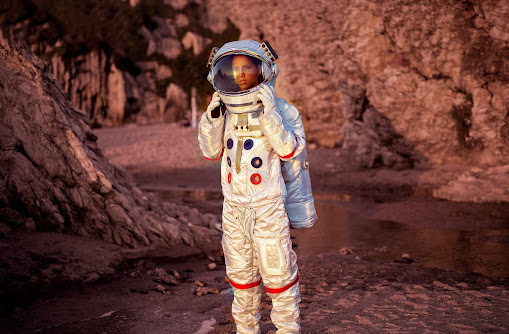 |
| Science Fiction |
Science fiction, abbreviated SF or science fiction, is a form of fiction that deals primarily with the influence of real or fictional science on society or individuals. The term science fiction was coined in the 1920s by Hugo Jrnbach, an American publisher who was one of the leading advocates of the genre. He has been nominated for the Hugo Awards each year by the World Science Fiction Society since 1953. These awards are given to SF's top writers, editors, illustrators, films and fans.
Science fiction is a modern style. Although in ancient times authors occasionally encountered themes common to modern science fiction, no attempt was made for scientific and technical possibilities in their stories, prior to betting works and other contemporary ula hajana styles, separates from fantasy and horror. This style officially originated in the West, where the social changes brought about by the Industrial Revolution inspired the first writers and intellectuals to eliminate the future impact of technology. In the early 20th century, standard science fiction "sets" developed around certain themes, including space travel, robots, aliens, and time travel (see major sci-fi themes below). The ritual of science fiction "theaters" includes prophecies, dreamy aspirations, vast landscapes of a completely fictional world, the Titanic disasters, bizarre cruises, and political movements, lectures, meditations, satires, metaphors and forms of many terrorist interests. Parodies - Demonstrating every subtle approach to the process of techno-social change, from subtle disappointment to cosmic bliss.
Science fiction writers often seek new scientific and technological developments to freely promote techno-social change, which shocks readers' cultural ownership and broadens their consciousness. This approach is central to the work of HG Wells, the founder of the genre and has the potential to become its greatest author. Wales 19th century British scientist T.H. An enthusiastic student of Huxley's, the open champion of Charles Darwin's theory of evolution, earned him the "Bulldog of Darwin". Wells' literary life provides ample evidence of the mysticism of science fiction, its association with aggressive satire and utopian political agendas, as well as the horrific predictions of technological destruction.
Types Of SCIENCE FICTION Genre
- Robots
- Aliens
- Technology
- Other Planets
- Space
- Science Fantasy
- Human Development
- Mutants
- Artificial Intelligence
WAR
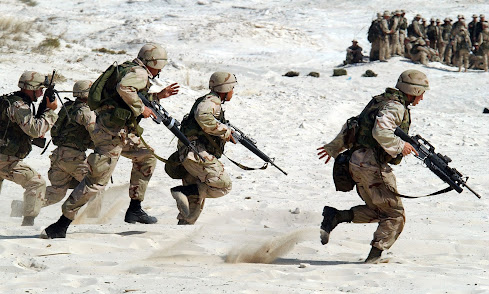 |
| War |
So, you started writing a war story and got stuck on the way. You may not believe in fulfilling all the necessary scenes and conventions in your story. You may be wondering if your control idea or item addresses overall values in combat style. Perhaps you are asking, what are the main emotions, sub-broadcasts and audience expectations of the war story? Do you also have a war story?
In my work as Story Grid Editor, I have done a lot of research on war stories and am happy to answer these questions by sharing what I have learned.
Basically, combat style involves the preparation, waiting, and recovery of a troop or group of soldiers from the time of war. In the war story the soldiers are likely to die when the battle takes place. It is important to note that this is not every story set during the war. It’s about building and leading a major fight, which is the equivalent of a “hero at villain grace” or “proof of love” scene for a love story. Establishing war can serve as a backdrop for any generation. War story is not a history lesson about wartime conflict, a group of fight scenes or a hero who is a bad-ass terminator robot. The story of the war is so much more.
Sean Coin wrote:
isolated and hated. Stories are ours. The stories use limited plot trajectories to represent world power struggles. Epic war stories also focus on deep personal and specific human conflicts. "
Let's unpack it
Here is my opinion: War stories focus on the inner changes of the protagonist and the external brutality of the war. Your story should be about one person and about the struggle.
In war stories, human behavior is dramatic to demonstrate the symbiosis of cruelty and benevolence and how extreme situations and trauma bring the best and worst in soldiers.
Types Of WAR Genre
- Political
- Historical
- World War
- Military's
- Government
- Enemy
WESTERN
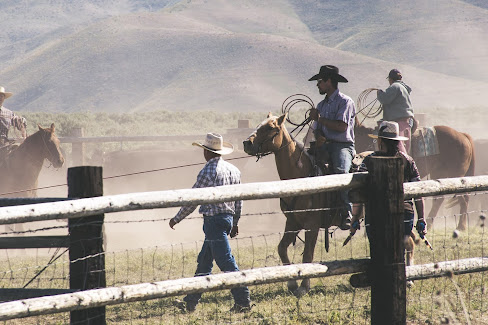 |
| Western |
Western fiction style first appears in 19th-century Frontier America as a collection of novels or stories, set with a strong, self-contained central character; Common plot; Action complete; Often there were cowboys, cavalry, lawyers and Old West bandits.
It is clear that Westerners enjoyed their golden age in the 1930s and 1940s and remained a powerful style in the 1950s and 1960s, although my first thought now is that many mass-market publishers have abandoned this style in the West, and many others seem to be focusing on dead Western writers. If your protagonists are still cowboys, have a positive outlook: as Western fiction is no longer an important part of mainstream publishing, and only as a niche market, university journals have experienced some recession, small Western fiction and unpublished publication.
To the west is the Mississippi River, with its vast plains, rugged tablelands and part of the United States, especially the Great Plains and the southwestern mountain ranges. After the American Civil War (1861-65) the area was not actually open to white settlement, during which time plain Indians were gradually suppressed and most of their land was occupied by white settlers and American cavalry. Rejected by Conflicts between white pioneers and Indians are one of the basic themes of Western countries. Another pawn, a class of men known as the Cowboys, was commissioned by the Ranchers to transport hundreds of miles of western lands to the Railheads, where animals could be sent to market to the east. The livestock and mining industries accelerated the development of towns, and gradually such populated societies needed to be nurtured by another class of men in the enforcement of peace, who became the mainstay of Western, city sheriffs and American motels. True historical figures in the American West discovered the significance of the compositions of the days after the era. Wild Bill Hikok, Wyatt Irp and other lawyers were often filmed, with thefts like Billy the Kid and Jesse James.
Types Of WESTERN Genre
- Cowboy
- Land Rush
- Law And Lawmen
- Comedy and Parody
- Detective
- Buffalo Runner
- Horse Riders
- Bounty Hunter
- Gunslinger
- Drifter
